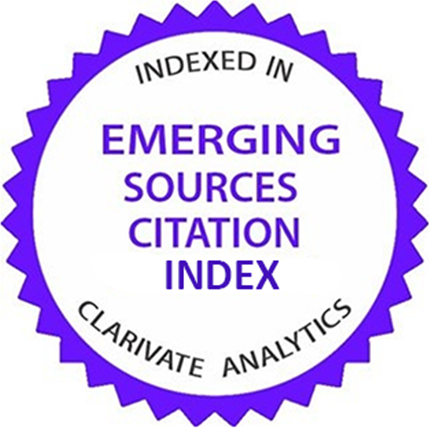Impact of Ramadan on Emergency Department Patients Flow; a Cross-Sectional Study in UAE
Abstract
Introduction: Ramadan, the ninth month of the Islamic lunar calendar, is, to Muslims, the holiest month of the year. During this month, young, able-bodied Muslims are commanded to abstain from food and drink from dawn to dusk. Objective: The objective of the study is to analyze emergency department (ED) patients flow during the holy month of Ramadan and compare it to non-Ramadan days. We hypothesized that Ramadan would affect ED attendance by altering peak hours, and expected a dip in attendance around evening time (after sunset). Methods: In Abu Dhabi, United Arab Emirates, a retrospective study was conducted at a tertiary hospital (2014-2016). The data was strategically separated and patient presence was analyzed year-wise, weekday basis and based on the hourly presence of the patients in the ED of the chosen hospital. Results: A total of 45,116 ED’s patient visits were analyzed over the mentioned study period. There was a difference in the total volume of Ramadan and non-Ramadan patient between the years 2014-2016. In all of the years, the highest percentage of visits was during the non-Ramadan days and this had a small fluctuation from 53% in 2014 to 52% in 2016 (p=0.001). It was observed from the collected data that 53% of the patients were present in the hospital during the fasting hours whereas 47% were present during the non-fasting hours (p<0.001). Conclusion: We were successfully able to derive a pattern from the data of 3 years in relation to the patient flow in the ED of the hospital. Moreover, we observed the difference in the patient arrival pattern between the Ramadan and non-Ramadan days in the hospital along with the predominant categorization of patient chief complaints. Our study identified a unique pattern of ED hourly visits during Ramadan.
2. Roky R, Chapotot F, Hakkou F, Benchekroun MT, Buguet A. Sleep during Ramadan intermittent fasting. J Sleep Res. 2001;10(4):319-27.
3. BaHammam AS, Almushailhi K, Pandi‐Perumal SR, Sharif MM. Intermittent fasting during R amadan: does it affect sleep? J Sleep Res. 2014;23(1):35-43.
4. Roky R, Chapotot F, Benchekroun MT, Benaji B, Hakkou F, Elkhalifi H, et al. Daytime sleepiness during Ramadan intermittent fasting: polysomnographic and quantitative waking EEG study. J Sleep Res. 2003;12(2):95-101.
5. World Population Review. United Arab Emirates Population 2019.Available from: http://worldpopulationreview.com/countries/united-arab-emirates-population/ (2019, accessed 06 November 2019].
6. D Dubinsky I. Emergency physician workload modeling. CJEM. 2012;14(4):215-20.
7. Kirk BJ. Staffing Your Emergency Department. Available from: http://www.best-practices.com/wp-content/uploads/2015/08/Staffing-Your-ED_White-Paper.pdf (2015, accessed 06 November 2019].
8. Butt T, Khan HU, Ahmed I, Eldali A. Emergency department attendance patterns during Ramadan. Ann Saudi Med. 2016;36(4):258-64.
9. Moorhead JC, Gallery ME, Mannle T, Chaney WC, Conrad LC, Dalsey WC, et al. A study of the workforce in emergency medicine. Ann Emerg Med. 1998;31(5):595-607.
10. Bener A, Derbala MF, Al Kaabi S, Taryam LO, Al Ameri MM, Al Muraikhi NM, et al. Frequency of peptic ulcer disease during and after Ramadan in a United Arab Emirates hospital. East Mediterr Health J. 2006;12(1-2):105-11.
11. Al Assaad RG, Bachir R, El Sayed MJ. Impact of Ramadan on emergency department visits and on medical emergencies. Eur J Emerg Med. 2018;25(6):440-4.
12. McCarthy ML, Zeger SL, Ding R, Aronsky D, Hoot NR, Kelen GD. The challenge of predicting demand for emergency department services. Acad Emerg Med. 2008;15(4):337-46.
13. Balhara KS, Levin S, Cole G, Scheulen J, Anton XP, Rahiman HA, et al. Emergency department resource utilization during Ramadan: distinct and reproducible patterns over a 4-year period in Abu Dhabi. Eur J Emerg Med. 2018;25(1):39-45.
14. Dönderici O, Temizhan A, Küçükbaş T, Eskioglu E. Effect of Ramadan on peptic ulcer complications. Scand J Gastroenterol. 1994;29(7):603-6.
15. Topacoglu H, Karcioglu O, Yuruktumen A, Kiran S, Cimrin AH, Ozucelik DN, et al. Impact of Ramadan on demographics and frequencies of disease‐related visits in the emergency department. Int J Clin Pract. 2005;59(8):900-5.
16. Abu-Salameh I, Plakht Y, Ifergane G. Migraine exacerbation during Ramadan fasting. J Headache Pain. 2010;11(6):513-7.
17. Elbarsha A, Elhemri M, Lawgaly SA, Rajab A, Almoghrabi B, Elmehdawi RR. Outcomes and hospital admission patterns in patients with diabetes during Ramadan versus a non-fasting period. Ann Saudi Med. 2018;38(5):344-51.
18. Cevik Y, Corbacioglu SK, Cikrikci G, Oncul V, Emektar E. The effects of Ramadan fasting on the number of renal colic visits to the emergency department. Pak J Med Sci. 2016;32(1):18-21.
| Files | ||
| Issue | Vol 4 No 2 (2020): Spring (April) | |
| Section | Original article | |
| PMCID | PMC7163260 | |
| PMID | 32322790 | |
| Keywords | ||
| Emergency Service, Hospital Fasting Patient Admission | ||
| Rights and permissions | |

|
This work is licensed under a Creative Commons Attribution-NonCommercial 4.0 International License. |










